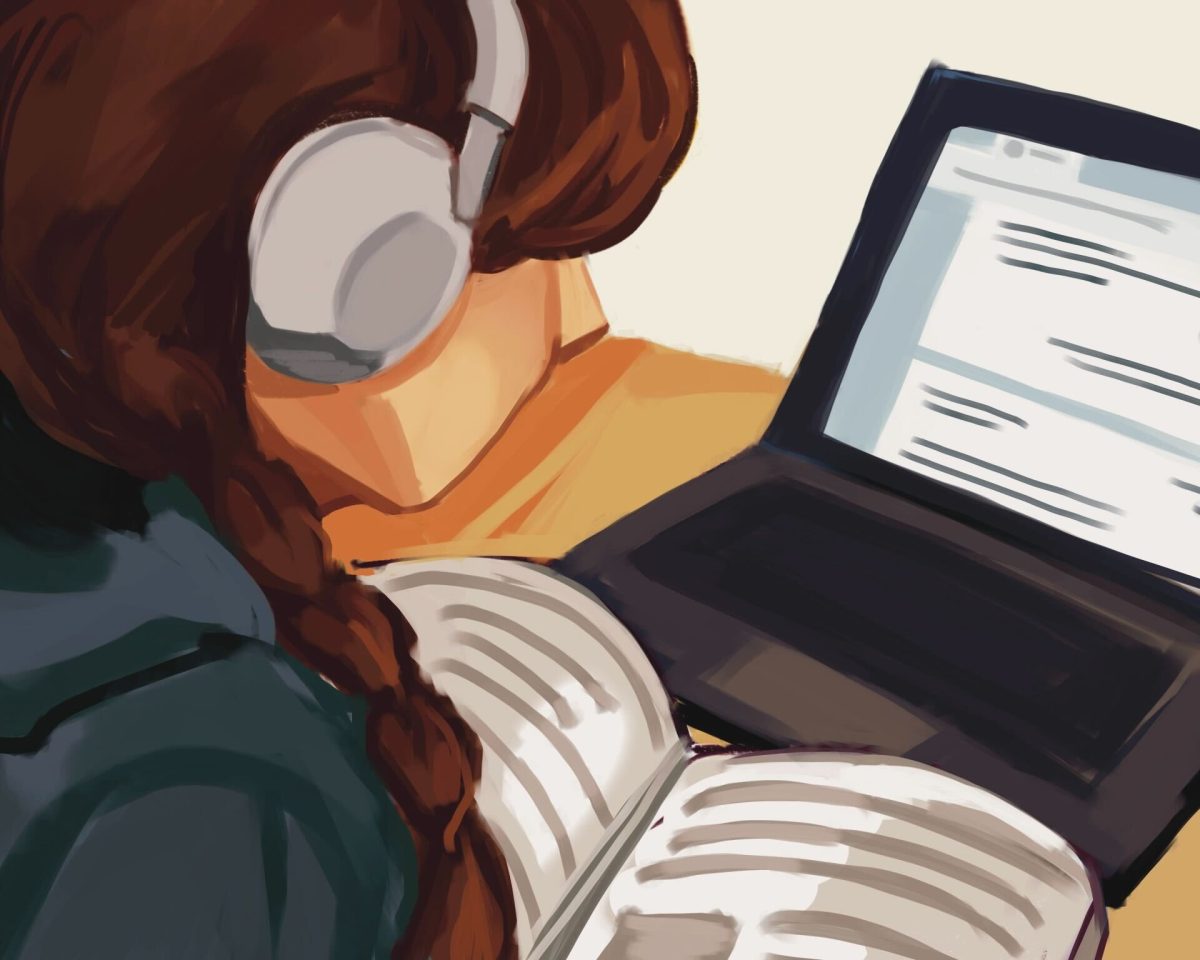Take a look around a classroom and, chances are, you’ll see math worksheets and notes turned into art canvases with doodles scrawled in blue ink.
You’ll also see students starting the day with caffeinated drinks to prepare for the long day ahead.
However, if you look closer and see the inflexible curriculums that force students to adhere to rigid learning styles, the problem is clear: most Paly courses sacrifice individual growth and nurturing academic curiosities for meeting state guidelines.
For example, my friends and I used to enjoy reading, spending sunrise to sunset reading every summer day. However, after being forced to read “To Kill A Mockingbird,” what used to be a pleasant hobby has become a chore.
And between extracurricular activities and school work, there is almost no free time that I even want to spend reading, let alone a required book.
Although group projects and in-class activities prove helpful in learning to think critically and provide us with the opportunity to engage with course material, I find that our courses lack independent learning opportunities.
For instance, English classes could encourage students to test the waters with different genres and allow them to read according to their pace. When students find the right book, these independent reading assignments could boost creativity and engagement.
If students were able to choose what books they read, even if there are some requirements as to what those books are, students would be challenged in new ways.
Students do not need to have independent reading constantly, but incorporating this more into English classes would provide multiple rewards.
According to Education First, a website dedicated to creating programs and sharing information about learning, independent reading has numerous benefits including improving focus, writing skills, critical thinking and open-mindedness.
Additionally, being able to find excitement and intrinsic curiosity in books is irreplaceable and allows students to have fun while honing their decision-making skills and discipline.
It is natural that there are students who would try and purposely choose short books or different books that would not be a sufficient substitute for English books. However, if the teachers were to approve the books, this would ensure that the students would get a good read.
However, certain books expose students to history and lived viewpoints which is essential in an increasingly polarized society, so I agree that some books should remain mandatory.
I believe that occasionally, we should have independent reading assignments, more for pleasure than learning.
One might question how teachers would know if the students were doing the reading since it is independent. However, if students were required to give summaries of certain chapters, teachers could deduce whether students were actually reading. Additionally, to ensure that the students truly read the book, the teacher can also ask more in-depth questions about writing tools like finding figurative language and analyzing it.
I’m sure plenty of students at Paly truly enjoy reading and would find their curiosity and interests increasing by having the time and encouragement to read the books they want to read.
But due to the academic pressures and shuttling between classes and extracurriculars, many students are unable to read as much as they want to.
However, by integrating more independent reading assignments into our curriculum, students could kill two birds with one stone: completing school work and nurturing their own curiosity.
Another way students can take advantage of their interest in subjects is by taking elective offerings in their preferred subject.
While science and humanities enthusiasts have an array of electives to choose from at Paly, there is an extremely limited variety of math electives at Paly. Specifically, Paly offers one math elective: AP Statistics. Due to these limited course offerings, students may not figure out if they truly enjoy math during their high school experience.
Time and time again, I see students struggling with math and wondering what the real-world application of math is, so being able to take classes rooted in application would help students understand whether or not they are interested in mathematics.
So, I propose Paly should not only offer more math electives for students to take, but also focus on integrating real-world application into the courses.
For instance, engineering classes, which are heavily rooted in math, would open new doors for many dedicated, math-loving students at Paly.
Over my years in school, I’ve noticed that students are more focused when they are learning about topics they are interested in. By having more math electives, we give more opportunities for students to enjoy their classes.
In general, independent learning through various methods in Paly is crucial for both the personal and the academic growth of students.
In English, more independent reading would boost a variety of skills in students which can help them down the road in life. Additionally, students should be offered more electives to take in order to find more interesting math classes.


